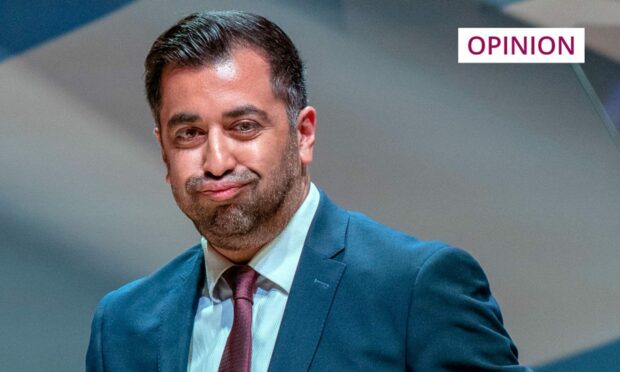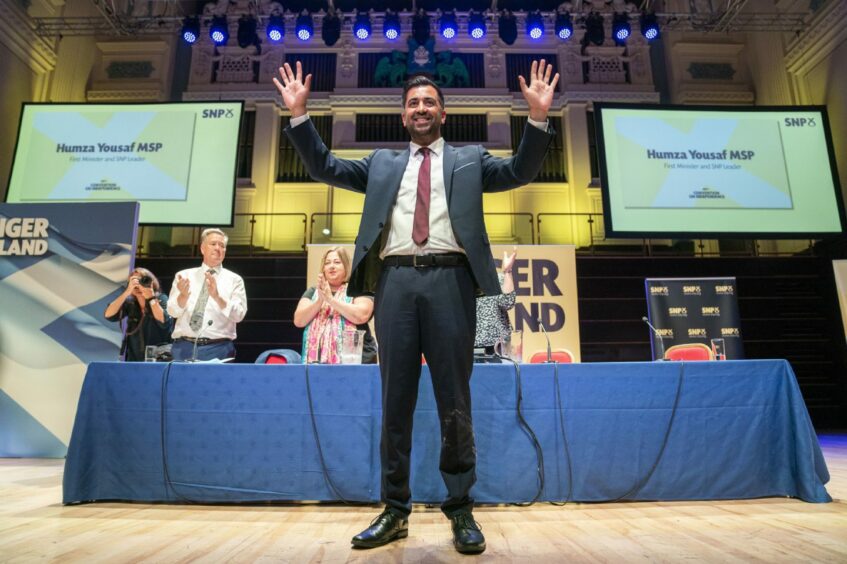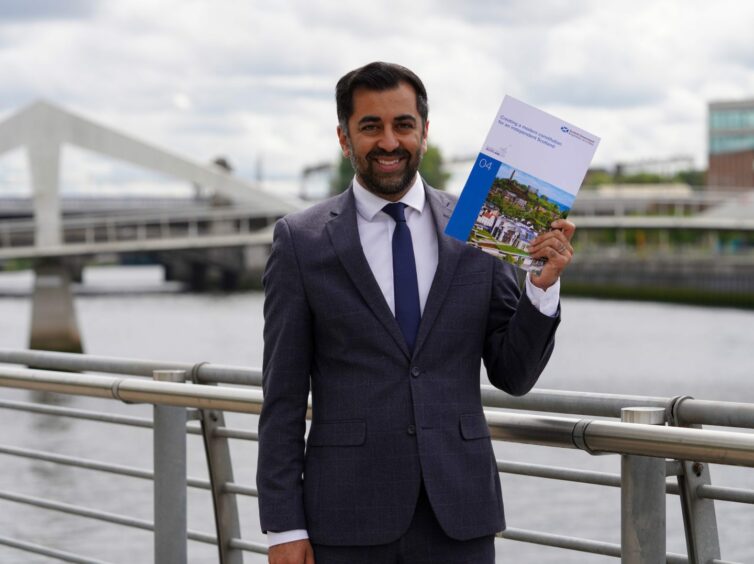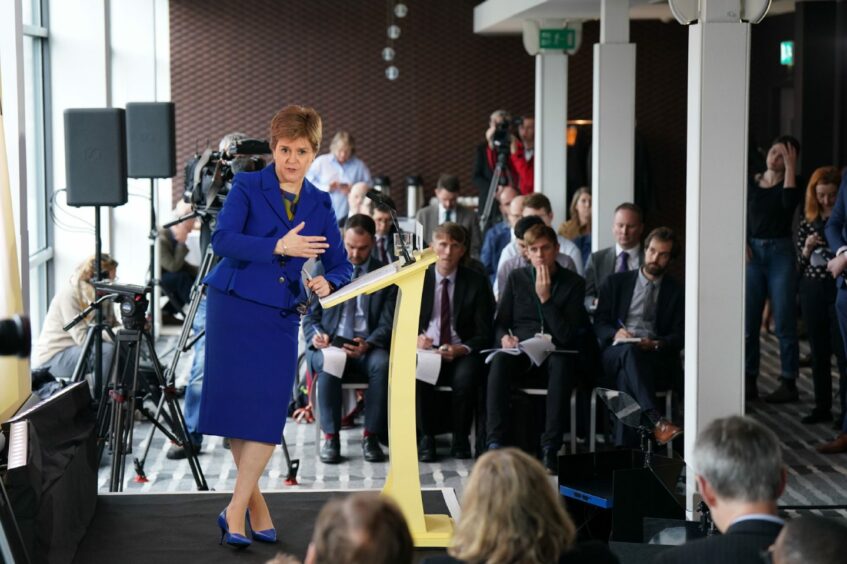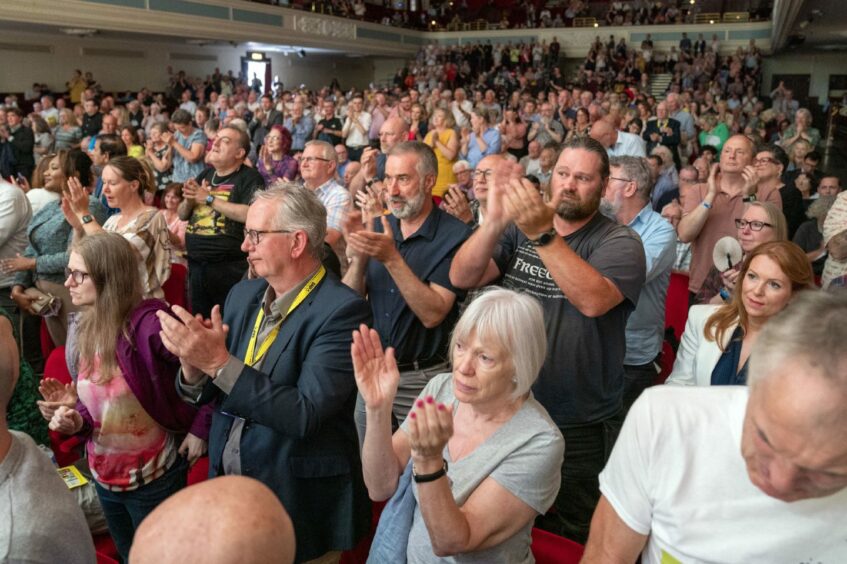For supporters of Scottish independence, feelings of political disappointment aren’t exactly novel.
Those of us who believe Scotland should be an independent country can either be comforted by the fact that roughly 50% of our fellow Scots agree with us, or dismayed at the fact that roughly the same number don’t.
The constitutional question remains in a state of stalemate.
We can’t ‘move on’ and simply forget there is still considerable support for independence, much as Unionist parties would like us to.
But neither can we move forward towards independence, when there is equal support for remaining in the Union.
This is a reality that the embattled SNP has had to grapple with since the 2014 referendum.
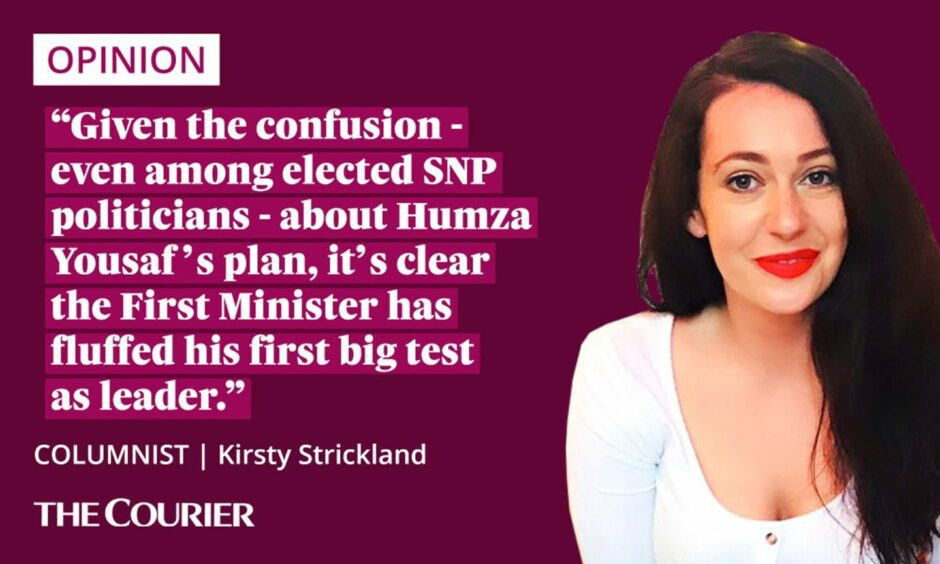
The SNP’s special convention on independence in Dundee at the weekend was designed to reset and re-energise both the SNP base and the wider movement.
It was Humza Yousaf’s big moment to set out his plans for ending the impasse on independence.
By any objective measure, he failed in that aim.
Not because his speech lacked a previously-undiscovered plan to secure a second independence referendum. Nobody really expected one.
But because the plan he did lay out was so muddled that it required clarification after the fact.
Humza Yousaf’s path to independence is far from simple
On Saturday, Humza Yousaf pledged that his party would offer voters “a manifesto for an independent Scotland’’ at the next UK general election.
The manifesto would put a “simple, powerful statement to the people”, he added; namely: “Vote SNP for Scotland to become an independent country”.
If the SNP “win’’ that election then “the people will have spoken’’, he said.
“We will seek negotiations with the UK Government on how we give democratic effect to Scotland becoming an independent nation.’’
This could mean either the UK Government agree to a second independence referendum (unlikely) or the UK Government agree to begin negotiations on Scotland becoming independent (even less likely).
The next step would be a document setting out a new partnership agreement between Scotland and the rest of the UK, and a draft legal text on the transfer of powers from Westminster to Holyrood.
I’m reluctant to go into too much detail about the envoy he proposes to lay the groundwork for Scotland to re-join the EU, or the consultation he wants to set up to seek engagement on the formation of a Scottish draft interim constitution.
The cart is so far ahead of the horse in this case it would need to jump in an Uber to have a chance of catching up with it.
Seats not votes – the flaw in Humza Yousaf’s independence plan
Before her shock resignation, Nicola Sturgeon proposed that the SNP use the next UK general election as a de facto referendum on independence.
It was a plan riddled with risks, but at least it made sense.
Under her plan, the SNP would take winning a majority of Scottish votes in that contest as a mandate for independence.
When she was questioned on how likely it was that the SNP could pull off such a feat – given the fact that under 18s (who overwhelmingly support independence) can’t vote in UK elections – her answer was clear.
If the SNP can’t secure more than 50% of the vote, then there clearly isn’t majority support for independence, she said. If no majority support exists, then Scotland can’t become an independent country.
Under Humza Yousaf’s plan, it seems it’s seats that count towards independence, not votes.
And if, as expected, the SNP actually lose seats at the next election, but remain the largest Scottish party, the First Minister wants us to believe that this is a strong base from which to leap towards negotiations for Scotland to become an independent country.
It’s not.
Dundee speech ended in confusion and clarification
The SNP has won every Scottish and UK election since 2014.
The party absolutely has a mandate to hold another independence referendum.
It’s only because of Westminster intransigence that we’re being blocked from having our say.
But there is a huge difference between winning the right to consult the Scottish people on the constitution and taking the decision for them.
Given the confusion – even among elected SNP politicians – about Humza Yousaf’s independence plan, it’s clear the First Minister has fluffed his first big test as leader.
When it comes to something as fundamental as this, there should be no room for ambiguity.
If there is, it would suggest that strategic vagueness is to blame, rather than a poorly written speech.
We're continually told by Westminster that Scotland is part of a voluntary union, yet they deny us a choice over our own future.
So we will contest the next General Election on a simple proposition:
Vote @theSNP for Scotland to become an independent country.#WhyNotScotland? https://t.co/6bYQVXlQky
— Humza Yousaf (@HumzaYousaf) June 25, 2023
After his speech, the First Minister clarified that his preference would be for Westminster to agree to another referendum.
He said a SNP victory wouldn’t suddenly mean Scotland becomes independent, rather “through a democratic, lawful means, we begin negotiation with the UK Government on how to give that proposition democratic effect.”
Which brings us back to the place where we started and where we have been for quite some time.
It is a democratic outrage that a UK government that doesn’t command popular support in Scotland can tell us what we can and can’t vote on.
But Humza Yousaf’s proposal for breaking the deadlock isn’t the answer.
